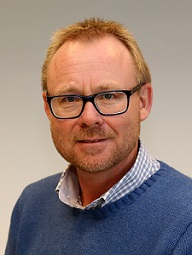HoD News - 10 September 2018

Dear colleagues,
Thanks to so many of you, our department has an excellent record in attracting external funding from both public and private funds. After financial contributions to the university and Aarhus BSS administrations, around one third of all annual revenues in the department originate from external grants. The past years, the annual revenue flow has been in the range of 50-60 million DKK, and I believe that this figure will increase slightly in the coming years. This amount corresponds approximately to the revenue that 1200 full time students would generate in one year.
Continued focus to attract research funding is thus essential for the financial sustainability of our department. External grants are not only important in their own right for generating revenue and research positions, they are fundamental for the creation of strong research environments within the department and for the creation of new knowledge via research publications. The spill-over between external funds and research output is especially important in the new economy model of Aarhus BSS, where external funds and research output contribute with, respectively, 20% and 25% in the allocation of basic research contributions (forskningsbasismidler) to the department. Students’ exams (STÅ) and the number of PhD graduates have 45% and 10%, respectively, in the allocation key. I would also like to add that the ability (or potential) to attract competitive research funding is important for recruitments and for promotions within the department.
Despite the generally good external funding track of department members, there are certain funding opportunities where we need to improve our efforts in the future. Our department is generally doing poorly in attracting prestigious ERC (starting, consolidator, advanced) grants as well as in attracting EU-horizon 2020 funding given the amount of funding that is actually available. In the past the department has hosted centres funded by the Danish National Research Foundation, and I believe that we have the research excellence to do so in the future as well; several individuals and research groups within the department have the potential to compete for DG-centres. A necessary requirement to get funding from the sources listed above is that applications are actually submitted. The department management and its new Head of External Research Funding, Helena Skyt Nielsen, are presently working on a strategy for the department to improve performance with respect to these major prestigious funding opportunities.
Aarhus BSS has recently recruited an associate dean, Ulrik Federspiel, who will be responsible for advising on the interplay with external actors, including private funds and interest groups. I have asked the section heads to brainstorm on suggestions and ideas for themes and research groups that potentially can initiate new major centre creations funded by private funds with the support from the new associate dean, who can act as a “door opener”. My guess is that to proceed along these lines, focus should be on research fields that are considered to be of particular societal relevance. Proposals that go across research disciplines within the department should be considered as well. I welcome suggestions and ideas from all of you. Please contact your head of section (and/or Helena and me) if you have ideas and thoughts you would like to share and discuss.
I would like to thank individuals, research groups, and centres for their continued work with fund-raising. Your efforts and work are much appreciated.
Niels Haldrup